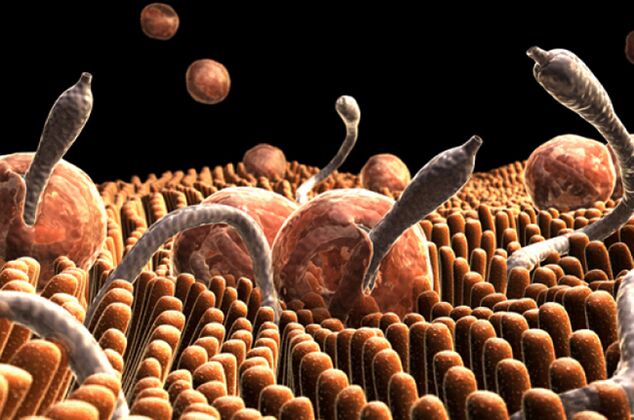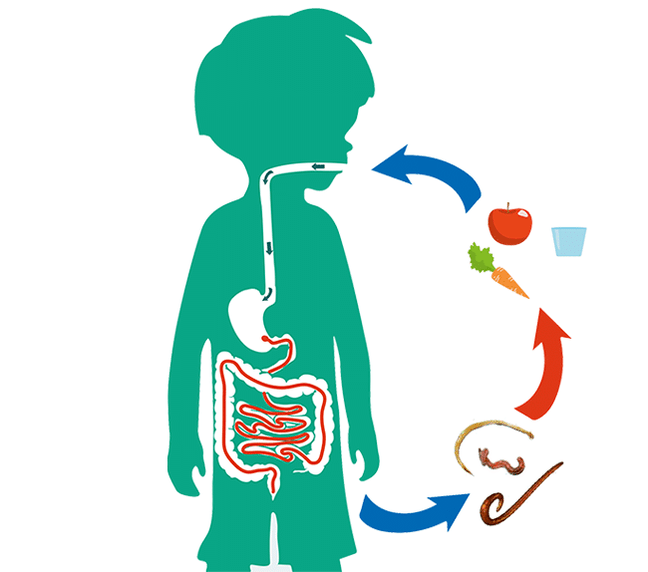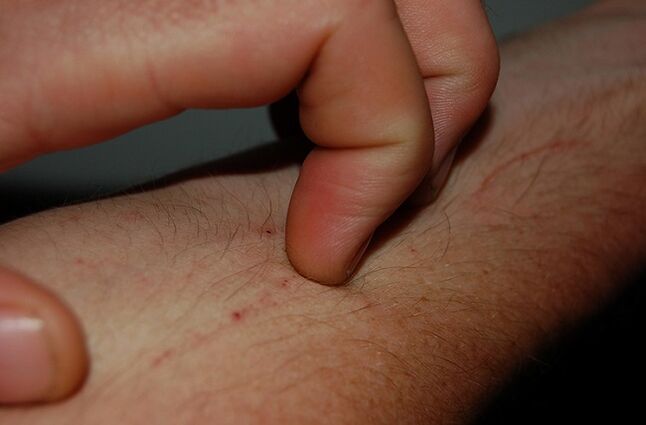Many people believe that developed countries do not have problems with parasites, but the World Health Organization estimates that about 3 billion people in the world live with parasites, which is almost half of the world's population.
Parasitosis.What is that?
Parasitosis is a term that summarizes all infections that can ultimately lead to diseases caused by various parasites - creatures that live at the expense of their host.

Parasitosis is divided into several groups depending on the type of parasite:
- Protozoa (single-celled parasites).
- Worms (multicellular parasites).
- Arthropods.
In addition, they are divided into two groups depending on their location.If the parasites are outside the human body, they are called ectoparasites, while inside they are called endoparasites.
Parasites can invade any body system: blood, lungs, liver, kidneys, heart, skin, kidneys, uterus and even the brain, causing various symptoms.
Causes and routes of infection
There are many ways to become infected with parasites.For example, consuming contaminated food or water, raw meat, or unwashed fruits and vegetables can lead to infection.
In addition, transmission of parasites from person to person is possible, which is the case with lice when an infected person touches hair or puts on a hat.
Sexual intercourse can also lead to infections, especially anal contact.Roundworms, for example, stay near the anus and lay eggs there.
Other routes of transmission may include pets, contaminated soil, or insects that can transmit parasites, including fleas, ticks, and mosquitoes.
The larvae of some worms enter the bloodstream directly through the skin, from where they are transported to the lungs and then through the respiratory tract into the pharynx and finally into the digestive tract.

Symptoms of parasitosis
The main symptoms that occur with a parasite infection include:
- Sleep disorders (insomnia, teeth grinding at night, bedwetting).
- Skin problems (dry skin, itching, eczema, rashes and acne).
- Increased fatigue.
- Irritation in the intestines (stomach pain, flatulence, constipation).
- Stomach problems (colic, intolerance to certain foods).
- Inflammation (arthritis, pain in muscles, arms and legs).
- Uncontrolled changes in body weight.
- Psychological imbalance (nervousness, stress, depression).
- Problems with the urogenital organ (cysts, prostate problems, menstrual disorders).

First of all, it should be understood that a parasite is a living creature that feeds on its host, and therefore its presence in the body is always associated with a lack of nutrients and energy.In addition, they release toxic metabolic products that put a strain on the intestines and liver and thereby weaken the immune system.
diagnosis
Diagnosing a parasitic infection is often quite difficult due to the non-specific symptoms that can occur with many other diseases.
Lice can be detected through visual inspection as they are visible to the naked eye.In other cases, the stool analysis is carried out in the laboratory.Some types of parasites can be detected as antibodies in the blood, such as dog tapeworm.
Treatment of parasitosis
Treatment of diseases associated with parasites is divided into several stages:
- Initially, in which the body prepares to remove parasites.
- Primarily, in which various means and medications are used.
- Restful, during which organ functions are restored and metabolism in the body is normalized.
Colon cleansing is the very first step in eliminating parasites, because colon cleansing improves the entire intestinal environment.Therefore, various pathogens, bacteria and fungi will no longer find an ideal habitat in the intestines in the future.
Intensive intestinal cleansing also removes old layers of mucus, which are among the most popular hiding places for parasites.
All medications should only be prescribed by the attending physician, as medications used to treat parasitosis have a toxic effect and must be used in certain quantities.
The drugs used to treat parasitosis differ mainly depending on the type of parasite.

In addition to the medications prescribed by your doctor, it is also recommended to take medicines of natural origin, which include papaya seeds (5-6 seeds several times a day are enough), fresh garlic and pumpkin seeds.Pumpkin seeds, for example, contain a special substance that promotes the paralysis of parasites.
There are also traditional methods of treating parasitosis.For example, cleansing with cranberry juice helps get rid of protozoan parasites.To do this, you need to drink 2 liters of water and 40 grams of cranberry juice, add 20 grams of salt and do an enema twice a day.
To treat giardiasis, you can make a tincture of lilac flowers by pouring alcohol into the dried flowers and letting it sit for a week.Drink before meals.
Taking an onion infusion helps with ascariasis.To do this, pour boiling water over the chopped onion and let it steep for 10 hours.Take 100 ml per day for 4-5 days.
Pomegranate bark, brewed with boiling water and consumed before meals in an amount of 5 ml, helps get rid of helminths.
As adjunctive therapy, sugar and highly processed foods should be avoided.You need to make sure your diet contains enough fiber to promote healthy digestion and quick digestion.
Prevention
To prevent the appearance of parasites, you must adhere to the following rules:
- Wash your hands before eating and after using the toilet.
- Be sure to wear gloves when working with soil or sand as they may contain parasite eggs or cysts.
- Do not allow children to lick or kiss animals that have not been wormed.
- All fresh vegetables and fruits should be washed thoroughly before consumption.
- Don't eat raw meat and fish.
- Wear long sleeves, long pants, and boots when walking in the woods.










